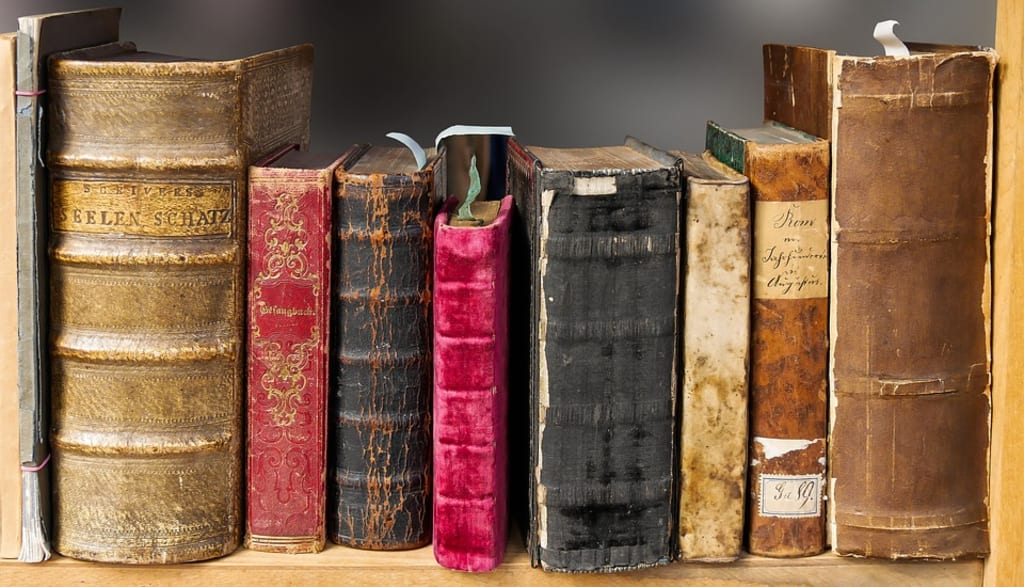Literature Books That Should Be Read in Schools
As education has become more political than ever, it is time to change the literature we read in schools.

I started reading books when I was four. My education was entrusted fairly young by grandparents who taught me and my sister basic math, reading, and writing skills to do well in school. Of course, needless to say, we were both compatible in intellect until I stopped doing my eighth grade homework. My sister excels in the rational and logical world, while I am rational but emotional due to my interests in the arts and literature.
But one thing I cannot stand is the need to take away important literature works. Springboard is a program for those who have literacy and writing skills at a lower level compared to those who excel in the highest percentiles. Both me and my sister and some of my old teachers agree that Springboard is damaging the importance of literature works and the reputation of learning.
So here is a list of literature that I think is highly important to combat the political transition of the education system.
'Night' by Elie Wiesel & 'Ragdolls' by Henry Golde
"But no sooner had we taken a few more steps than we saw the barbed wire of another camp. This one had an iron gate with the overhead inscription: ARBEIT MACHT FREI. Work makes you free."—Elie Wiesel, Night (1960)
Elie Wiesel was a Holocaust survivor. He was raised in Hungary and was sent to Auschwitz, a concentration camp where two million Jewish people were gassed to death in the final phases of WWII. He lost his family to starvation, typhus outbreaks, and the gas chambers.
Night is a powerful book which talks about Elie's life inside the infamous concentration camp located outside of Krakow, Poland. From the torture and abuse to the way the corpses of the dead were removed from their skin so that the mighty Führer may have lampshades for his highest ranking officials.
Henry Golde's novel Ragdolls is also a great story of survival. He was originally from Poland and was sent to the Warsaw ghetto and was liberated after the war in a concentration camp outside of Czechoslovakia. It was after he was liberated he found out his family perished at Terezin, a labor camp turned death camp where the trains went in full and came out empty.
In Florida, it is required by law to read material containing the Holocaust, because it is a reminder on the human condition where it is so easy to abuse power and status. It is an important reminder of struggles religious groups and other racial classes have to endure in their fight for equality.
'1984' & 'Animal Farm' by George Orwell
“But if thought corrupts language, language can also corrupt thought.”—George Orwell, 1984 (1948)
George Orwell was a dystopia writer of his decade. His novel 1984 is all about the way language controls our cultural and societal structure and how easy it is to control one's thoughts and speech. We write and speak our minds every day and it is the forefront of how our ideas have shaped the world we are in. For it to be taken away, we only listen to those who tell us what we want to hear.
Animal Farm is also a great book by Orwell. It is a satire written on the basis of Marx's joint work, the Communist Manifesto. It shows many of the minor weaknesses in the theory of Marxism and how frail the theory is to the point where it collapses. But it also shows that in some smaller locations or smaller places of government, Marxism can work to some degree. It also has a cultural explanation as to why you should never name a pig Napoleon.
'A Clockwork Orange' by Anthony Burgess
"The Durango '95 purred away a real horrowshow - a nice, warm vibraty feeling all through your guttiwuts. And soon it was trees and dark, my brothers, with real country dark."—Anthony Burgess, A Clockwork Orange (1962)
If you want to purr in your guttiwuts, look no further than the infamous novel A Clockwork Orange. This novel is the epicenter of the real life mentally unstable. From the murder and rape of a woman to the disability caused by a group of teenagers who do absolutely nothing all day (do they ever go to school at all?), it pairs well with some of the other books mentioned in the list. It is all about the human condition in which power can be easily taken for granted and that the abuse of power might lead to doing some things that are not a good idea.
'The Grapes of Wrath' by John Steinbeck
“There ain't no sin and there ain't no virtue. There's just stuff people do.”—John Steinbeck, The Grapes of Wrath (1939)
John Steinbeck traveled the United States to cover what happened to those who were affected by the Great Depression or the Dust Bowl of the time. It shows how people flock to find work and are in desperate need of finding a place to be able to get basic necessities. The novel follows the life of a family whose son just got out of jail as they head to California to look for work. The Cider House Rules is also set in the same time period as well as Out of the Dust. Any book on the Great Depression is trivial to literature because it is the most important turning point in history leading up to WWII and how modern farming and technological advances help drive the world out of the Depression and into the first global war.
'Paradise Lost' by John Milton
“The mind is its own place, and in itself can make a heaven of hell, a hell of heaven" -John Milton, Paradise Lost (1667)
Known for its symbolism and its work on the obedience to God. Milton's work also discusses the ways in which societies back then would punish those who mock or have forgotten the word of the Lord. It is a highly praised story of the ways man have gone to the Lord for salvation and of those who have turned away out of other intentions. It is rife with the ways of which men can fall from the grace of God and into their own demons.
Hawthorne's The Scarlet Letter was also written during the time period in which religion was vital in the ways Puritan communities would often live. Although Hawthorne's work is a noted satire of the Puritan religion and its community, Milton's novel is that of his Calvinist beliefs and of those who thought the Church of England swayed not in favor of Protestantism overall.
'Lolita' by Vladimir Nabokov
“I think it is all a matter of love; the more you love a memory the stronger and stranger it becomes”—Vladimir Nabokov, Lolita (1955)
This book, to say the least, is one of the most controversial novels written in Russia. Even though pedophilia is throughout the novel, it is important to note that desire alone can drive any human being mad with insanity and rife with obsession. You don't need Freud to tell you that.
'Howl' by Alan Ginsburg
“We are great writers on the same dreadful typewriter” -Alan Ginsburg, Howl and Other Poems (1956)
If you haven't seen the movie Kill Your Darlings, you are missing out on the story of one of the best Jewish poets in history. Even though the collection of poetic work has been banned because it contains a depiction of homosexual acts, it is still important to discuss human desire and evolutionary purposes of sexuality within nature.
'Gone with the Wind' by Margaret Mitchell
“My dear, I don't give a damn.” -Margaret Mitchell, Gone with the Wind (1936)
The Civil War was one of the worst bloodsheds on American soil. It was brother against brother, cousin against cousin, and father against son. The novel by Margaret Mitchell follows Scarlett O'Hara who lives on a plantation and struggles to keep herself afloat during the Civil War and its aftermath. It follows her troublesome relationship with many men, but none as famous as Rhett Butler. It shows how the South during the Civil War was trying to fight for their right to keep slaves, but the war was ended at Gettysburg when the North won the victory of the fight against Robert E. Lee's men. There are other works written about the Civil War by authors such as Mark Twain and Louisa May Alcott that may also be used instead of this long and winding novel.
Some of these are just a few of the works that should be taught in school. The rest would be up to those who want to change the way people think and feel and learn from paper and ink. If you want to change a generation, you start with its literary contenders. Then you can have your revolution.
About the Creator
Heather Wilkins
Born in South Carolina, raised in Florida. I enjoy writing for therapy or stress release. Enjoy my ramblings or any updates on cities where I live.






Comments
There are no comments for this story
Be the first to respond and start the conversation.